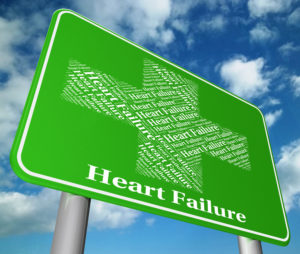
Risk Factors for Acute Myocardial Infarction in Pregnancy
There are various risk factors that place women at increased risk for acute myocardial infarction during pregnancy. In particular, women 40 years and older, with hypertension, gestational diabetes, anemia, migraines, chronic kidney disease, or thrombophilia (a blood clotting disorder), are more likely to experience AMI. Lifestyle factors, such as smoking, cocaine use, and obesity likewise contribute to the onset of AMI during pregnancy, especially in the third trimester or postpartum when infection is more likely.
Pregnancy complications, such as preeclampsia, eclampsia, postpartum bleeding, transfusion, amniotic fluid embolism, and electrolyte imbalance, are also associated with the condition. In addition, family history of coronary disease should raise suspicion of AMI. In fact, women with three or more of these risk factors should be screened for possible acute myocardial infarction. Treating physicians who fail to recognize and test for such a dangerous condition in pregnant women at risk may be liable for malpractice when mother or baby dies or is injured due to a missed diagnosis.
What Causes Acute Myocardial Infarction for Pregnant Women?
Pregnancy itself triggers AMI due to increased blood volume and production of hormones like estrogen and progesterone, which affect the elasticity of the heart muscles, further increasing the risk of cardiovascular conditions. Essentially, the increased blood volume increases the blood oxygenation demand. In addition, the heart pumps more blood and works harder, increasing maternal heart rate. Plus, during labor and delivery, heart rate and blood pressure accelerate with the physical work of laboring and coping with pain, anxiety, and contractions, as each contraction produces volumes of pumping blood that strain the heart and demands more oxygen. All of these pressures affecting the heart can cause ruptures or blockages, ultimately leading to heart failure.
Immediately after birth is also a precarious time, as the blood transfer from the uterus to the general circulation and the body’s physiological changes strain the coronary vessels, risking dissection or tears in the arteries. The two most common types of AMI are spontaneous coronary dissection, or tears in the heart arteries, and atherosclerotic coronary artery disease, or narrowing of the arteries close to the heart. If delivery is several months away, a stent may be placed in the narrowed or blocked arteries to increase blood flow. Either condition is incredibly dangerous to mother and child if not detected early and treated quickly.
Considering this, it is not difficult to understand why pregnancy alone puts a woman at increased risk for heart failure. While acute myocardial infarction seldom occurs in reproductive-aged women, becoming pregnant raises the risk of AMI between 300% and 400%.
Recognizing the Signs of AMI, Diagnosis, and Treatment
Many pregnancy-related AMI cases cause death, with estimates of up to 37% resulting in fatalities among total cases. Thus, those with risk factors ought to be screened, diagnosed, and treated for AMI as soon as possible, even if a pregnant woman’s distress signs during labor seem typical. A team of medical professionals, such as obstetricians, cardiologists, and anesthesiologists, must work to improve patient outcomes by recognizing signs early. Diagnosis rests on symptoms, such as chest pain, heartburn, vomiting or dizziness. These symptoms may appear like ordinary pregnancy, labor, and delivery side effects, but doctors should be suspicious of AMI in women with several risk factors who are experiencing these symptoms. Conducting tests like Electrocardiograms (ECG’s), echocardiograms, coronary angiography (dye used to find blockages), and blood tests in women experiencing chest pain serves to narrow the diagnosis to AMI, so proper treatment may promptly follow.
Treatment aims to control the blood flow to the heart to reduce heart damage and increase survival rates for the mother and child. Medication management with aspirin, heparin (an anticoagulant to prevent clotting), and beta blockers (used to lower heart rate and blood pressure) is standard treatment for anyone with AMI. In properly timed dosing, all of these drugs can be used safely during pregnancy. Pregnant women with AMI should be treated in the ICU, preparing for emergencies for mother and newborn, especially if the baby is to be delivered early. Likewise, premature delivery risks should be anticipated. Newborns are equally at risk for complications, like breathing and feeding difficulties, so healthcare providers should be prepared to administer proper treatment to ensure that the newborn can breathe and function outside of the womb, which increases their survival chances.
Managing Birth with Acute Myocardial Infarction
When delivery is imminent, the physician must correctly choose between vaginal birth or cesarean section, considering vaginal deliveries involve less bleeding and lower infection rates, while C-sections lessen the pressure on the heart resulting from contractions and pushing. Choosing which delivery method to employ and when to deliver depends on the viability of the fetus and the status of the mother’s health. These and many other decisions along the pregnancy, labor, and delivery process are critical to managing a safe childbirth.
Call our NJ Pregnancy-Related Acute Myocardial Infarction Malpractice Lawyers to Discuss Your Claim
If your obstetrician failed to recognize acute myocardial infarction or another heart condition, overlooking or minimizing risk factors and signs, failed to consult with specialists, choose the right delivery method, prepare for heart complications and premature birth, or otherwise mishandled your pregnancy and childbirth, you may have a malpractice claim. Whether a loved one suffered wrongful death or it was you who suffered birth injuries, our experienced malpractice attorneys at Fronzuto Law Group can guide you through the legal process and recover the compensation you deserve. We represent clients injured before, during, and after pregnancy and delivery throughout New Jersey and we are here to provide the answers you need to assert your legal rights. Contact our offices at 973-435-4551 for a free consultation or fill out our online form to request help today.
Additional Information:
- Acute myocardial infarction in pregnancy: Current diagnosis and management approaches, Indian Heart Journal
- Acute Myocardial Infarction in Pregnancy, Circulation

